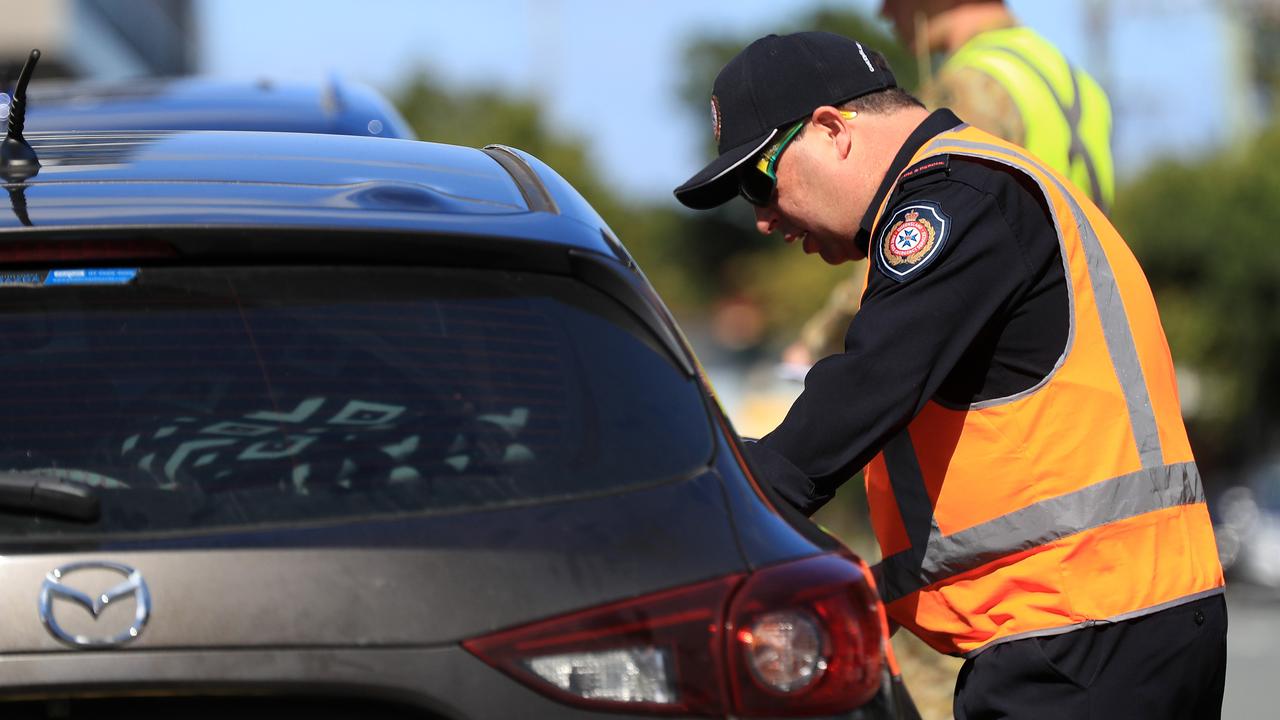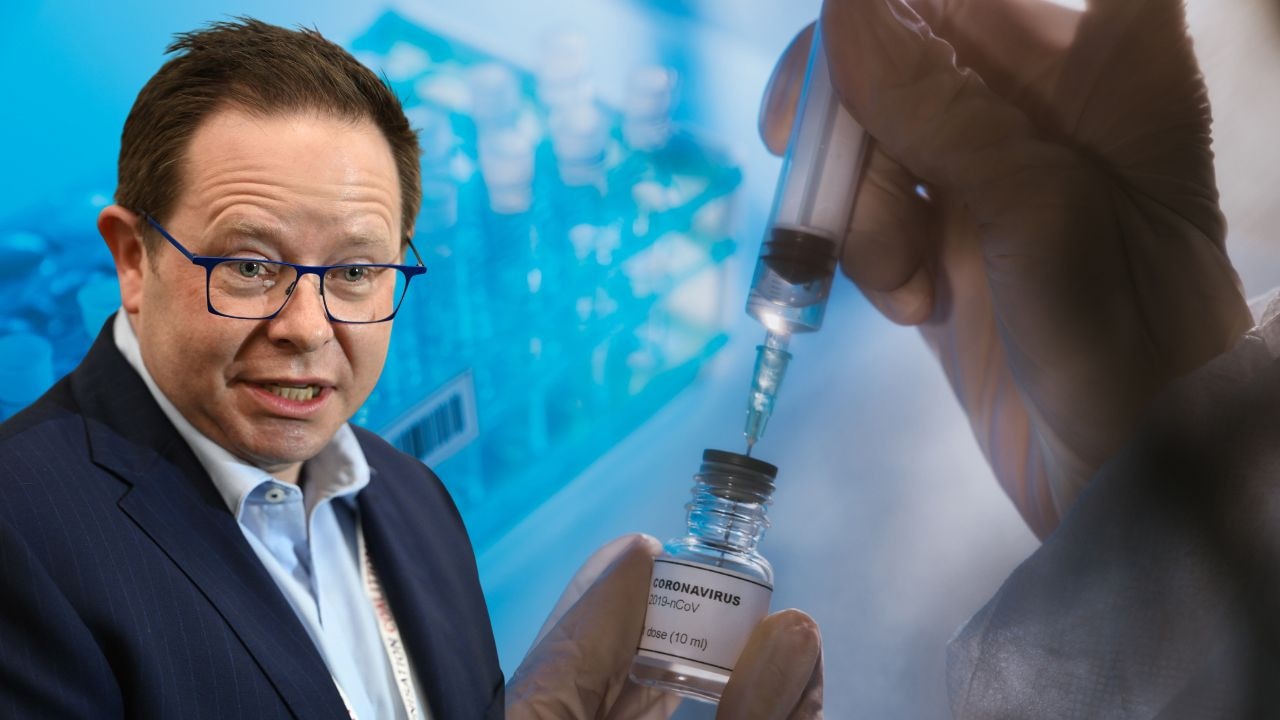Chief Health Officer answers questions on latest COVID-19 news
From the latest hotel quarantine cluster to the Gabba cricket match, here’s what Chief Health Officer Jeannette Young had to say.
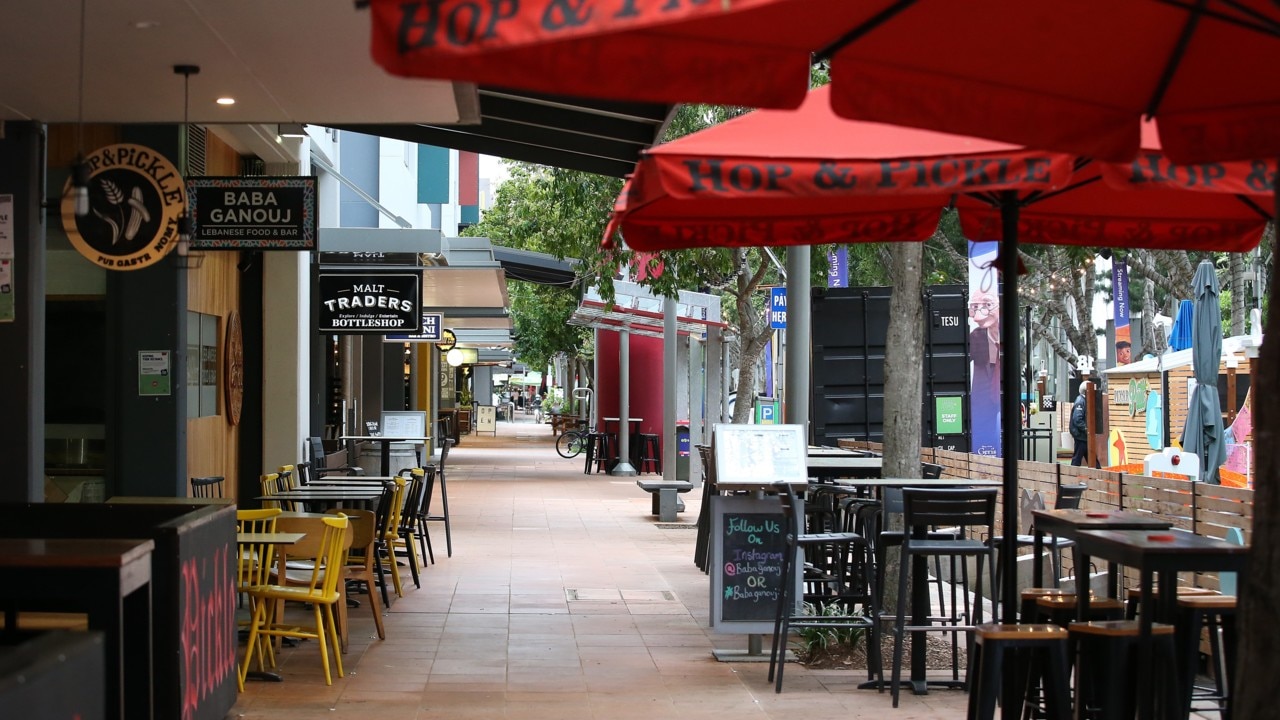
QLD Coronavirus News
Don't miss out on the headlines from QLD Coronavirus News. Followed categories will be added to My News.
Queensland’s Chief Health Officer has spoken out about the latest COVID-19 controversy, with guests at the Hotel Grand Chancellor being forced to stay another 14 days quarantined at another hotel.
At a media conference today, Jeannette Young answered 20 questions, where she revealed one third of interstate guests who were in hotel quarantine at the facility were yet to be contacted in person.
When asked how interstate travellers from the hotel who have since returned home would know they need to quarantine, Dr Young said everyone had received a text, but there were still some who had not been visited by an official.
“I don’t have the full details, we know that number now of 147 and we know that three quarters have been contacted but I just got that information this morning before coming in here,” she said.
“I haven’t got the specifics of how many in each state, how many were maritime workers and have gone overseas, how many others have gone overseas etc. That’s all the detail that’s being worked through.
“Everyone has received a text message telling them what to do, but I don’t think that’s enough contact.
“We now need to actually go and visit and talk to these people, so that takes a little bit longer but they’ve all been told.”
SEE ALL OF HER RESPONSES BELOW:
Q: Why move people who potentially have this very contagious variant of the virus to another hotel, why not leave them there instead of creating more touch points, interacting with staff, police and ambulance officers?
A: My concern was that I did not know how the virus spread in the hotel, so I didn’t want the virus to potentially spread to more people in the hotel. That’s why I wanted them all out of there. We’ve got to remember that QAS, our ambulance service have been moving infected people for many months because I did not want to keep infected people in a hotel once they’re found to be positive. They treated every single person in that hotel, all 129 of them, as if they had COVID-19. Therefore the movement was done perfectly safely to another hotel because we’ve also got obligations to not only the whole of Queensland to keep this virus out of other parts of Queensland, but we have obligations to those people that we’ve been quarantining in that hotel that they don’t get the virus while in quarantine from being there.
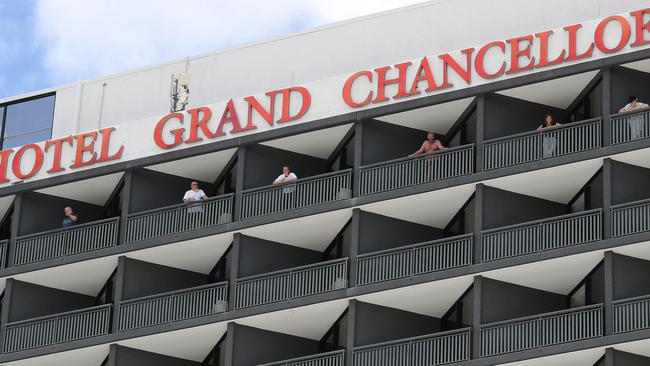
Q: Speaking with an ambulance officer yesterday, she was concerned because the training they had been given, to clean out and do deep cleans of the ambulances, but she felt with this new variant the training may not have been adequate if it was as contagious as everyone is saying that it is, she was concerned for her colleagues having to deal with these patients and felt like they were thrust into the frontline.
A: We have always trained our QAS officers to the maximum level. That is their expertise. They move infectious people every single day. That’s what they do. And they have been moving people with this variant but also with diseases that are more infectious than this. They know what they’re doing. I have absolutely no concerns. Plus – we moved each room in their own ambulance. We didn’t mix people. That’s why it took so long. I’m sure people were thinking, “Why did it take from when we made the decision first thing in the morning till nearly midnight?” It’s because we couldn’t let those people mix within the hotel when we were moving them out and we couldn’t let them mix when they went to the new hotel. So I assure you – all of those things were taken into consideration to make sure that the 129 people were kept safe and that anyone around them as this occurred were kept safe. No concerns there.
Q: Are you confident no one left their rooms at the Grand Chancellor during that period?
A: That’s what the police are investigating. That’s what they’re doing now.
We know that the gentleman from the UK and his partner arrived on the 30th of December, that’s a fact. They went into that room, then we know as a fact that the man from the UK left that room on the third of January when he was taken to hospital. We know as another fact that the cleaner only worked on the second. There is no way that the cleaner has gone into that room after that gentleman left. They’re all the facts but the rest of the investigation still needs to be worked through by police. But I am very certain that the cleaner was only there on the second and the man was still in the room on the second. The cleaner did not go into that room on the second.
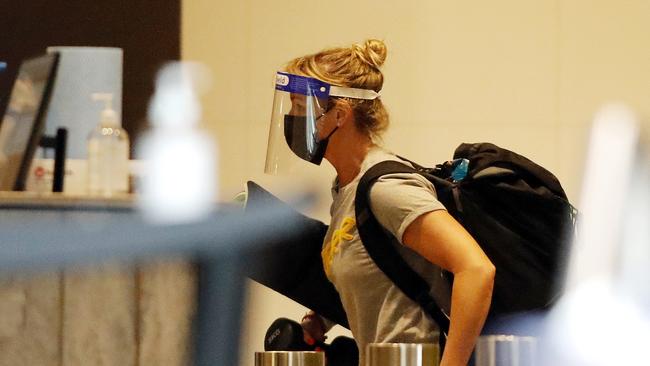
Q: In terms of the investigation, will Health be going into the rooms and testing whether there is virus in those rooms?
A: That’s part of the consideration of what’s happening at the moment to try and work out if there’s any more information we can get, but that’s all part of the investigation so we just need to wait for that investigation to do its work.
Q: For people who were in the hotel from New South Wales and Victoria, how can people have been contacted who have gone back to those states and need to quarantine and isolate?
A: I don’t have the full details, we know that number now of 147 and we know that three quarters have been contacted but I just got that information this morning before coming in here. I haven’t got the specifics of how many in each state, how many were maritime workers and have gone overseas, how many others have gone overseas etc. That’s all the detail that’s being worked through.
Q: That’s a pretty big gap, 250 to 147, how did that happen?
A: Because I am always the most cautious person so I asked for a list of everyone and I just took all the different lists I was given, maritime services had a list, other people had lists and because there are people in our society with the same names, so I did not do any cleansing at that point I just added them all up and said that’s the maximum number, 250. Then over the last 24 hours we’ve been able to look at each individual list, double check with dates of birth for information and come out with that definitive 147. I will always go for the broader and then tighten it.
Q: Do you know how many of those have been contacted?
A: I’ve said three quarters. Everyone has received a text message telling them what to do, but I don’t think that’s enough contact. We now need to actually go and visit and talk to these people, so that takes a little bit longer but they’ve all been told.
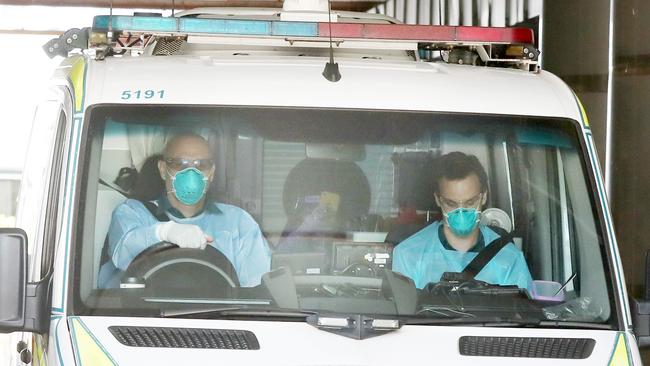
Q: To the hotel where they were taken last night, there are reports online that regular residents in that precinct did cross paths with some of the other people who were taken to that hotel, can you dispute that, can you say that didn’t happen or was there instances where regular residents were crossing paths?
A: I don’t have that detail but do know that all of the 129 residents that came from the Hotel Grand Chancellor wore PPE. I’m not saying that did occur, but if that did occur they were wearing PPE. We’ve got multiple layers of protection, we don’t just think one thing will work, we look at a range of things that work, then we test every single one of those 129 guests before they left the Hotel Grand Chancellor. We’ll be getting all of that information and then we will be able to look if there was anything that happened later we know that at that point in time what their status was but every single person was treated as if they had an active infection.
Q: Can I confirm that the Westin is the only hotel that travellers have been taken to?
A: Yes
Q: For some of those people not yet tracked down, is there a possibility that we’ll go back into lockdown if we can’t find them?
A: No, we’ll find them. But you’ve got to remember some of these people have gone overseas, they’ve gone on their vessels and left the country. We just need to work through all of them and that’s happening.
Q: Since we’ve managed to avoid any widespread community transmission from this even though it’s super infectious, do you think it’s good luck or good management?
A: I’m always going to say it’s management, you make your luck and we’ve got really good systems in Queensland and Queenslanders also do everything that’s asked of them. You’ve seen every day from the Deputy Police Commissioner how many fines they’ve handed out, it’s minuscule. How many people have just done what’s been asked. I think that three day lockdown was critical because then if any of those 406 close contacts are positive we will contact trace them of course and just check, but they weren’t out and about spreading it. It really is about our systems and we’ve been managing this since January last year. We’ve got a lot of experience and yes this new variant is more contagious but we’ve got all of that work that we’ve done until now to be able to manage it. Just imagine if it had been this variant that started the pandemic.
Q: The UK traveller who first entered quarantine, he tested positive on the second but wasn’t moved to hospital until the third, why was there a delay?
A: Getting the result. He was tested and then we got the positive result, as soon as he was positive he was moved. There’s not a delay. It takes 24 to 48 hours to get results. It actually makes it easier because we know then he did not leave his room until the third so that we don’t think that’s how there was transmission because the cleaner only worked the 2nd. It helps us work out potentially how this might have spread.
Q: From a public health perspective, with people being in a hotel room potentially without a balcony for 14 days let alone 28 days, What concerns do you have about a person’s health being in a hotel room for that long?
A: That’s why we have health involvements and health assessments of everyone who goes into quarantine to work through if there is any extra support, and we do have extra support that we provide to people who need it.
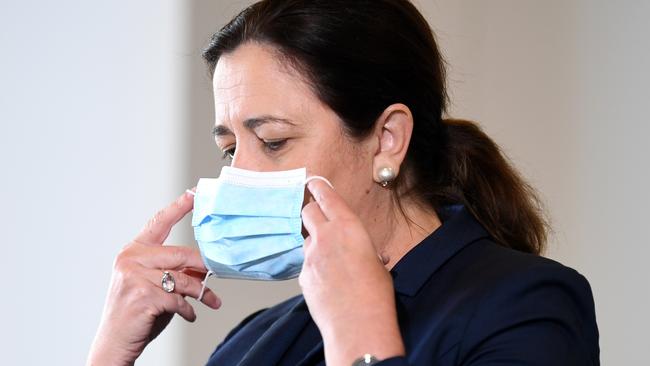
Q: With no access to fresh air if you don’t have a balcony, what concerns do you have about a person’s health in those circumstances?
A: It’s mainly mental health concerns and that’s the work we do every single day in all of those hotels.
Q: How is the cleaner’s mental health going? You mentioned with the investigation there is a lot of focus on her.
A: There is a lot of focus on her and all I can say is I thank her very much for all that she has done to assist. She has been extremely helpful.
Q: In terms of the AHPPC meeting yesterday, was there anything else that was discussed about changing protocols in hotel quarantine other than the mining camps?
A: We discussed a lot of issues and that information will go to the national cabinet for them to discuss. That is a confidential committee, we do our work and then provide confidential information through to our own premiers, our own ministers and it goes to the national cabinet.
Q: Is it fair enough to assume that there might be changes in protocols?
A: No, the national cabinet has already made decisions about changed protocols because of this new infectious strain and they have been put in place. Testing people before they hop on planes to come into Australia people wearing masks on planes, all of that advice went to national cabinet, was discussed and national cabinet came out and agreed.
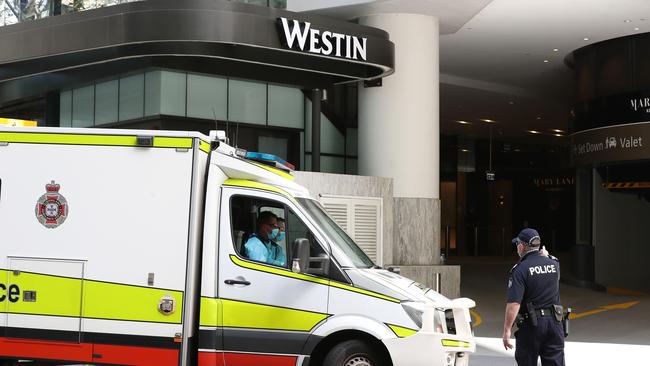
Q: The cricket this weekend at the Gabba, you’re pretty confident that it will all be safe?
A: Yes I am because I’ve been there, I’ve been to the Gabba, I’ve seen how they do things. It’s very impressive. There will be a 50 per cent capacity which means you can immediately have that checkerboard type arrangement in terms of spreading out of people. We’ve put in additional mitigation that we’re requiring everyone to wear masks until they sit down in their seat and we haven’t had that before. And we’re getting all of this information And I’m confident that we’ve got all the people who are close contacts into isolation. I’m very confident about that match.
Q: The Indian cricket team haven’t been too happy about how their hotel experience has been while being in Queensland, is it a bit harsh on them given they’ve been in the country for so long and they’ve been in that bubble?
A: I stand by it, they have come from a hotspot so they need to go into quarantine and their time in quarantine is less that I’m asking the people who have been in the Hotel Grand Chancellor to increase to. I’m sure it’s not pleasant. None of this is pleasant for a whole range of people for a whole range of reasons but we need to do it to keep people safe.
Q: Given that the minimum requirement is 14 days in hotel quarantine, now some of these people are up to 28 days, Why is not the case that the minimum standard for a room that is accepted into the program has access to a window that opens or even a balcony?
A: Because we haven’t had that capacity. We were taking over 1400 travellers from overseas per week. We will be able now to do that when the number reduces to 500 that was decided at national cabinet We just did not have the ability to implement that.

